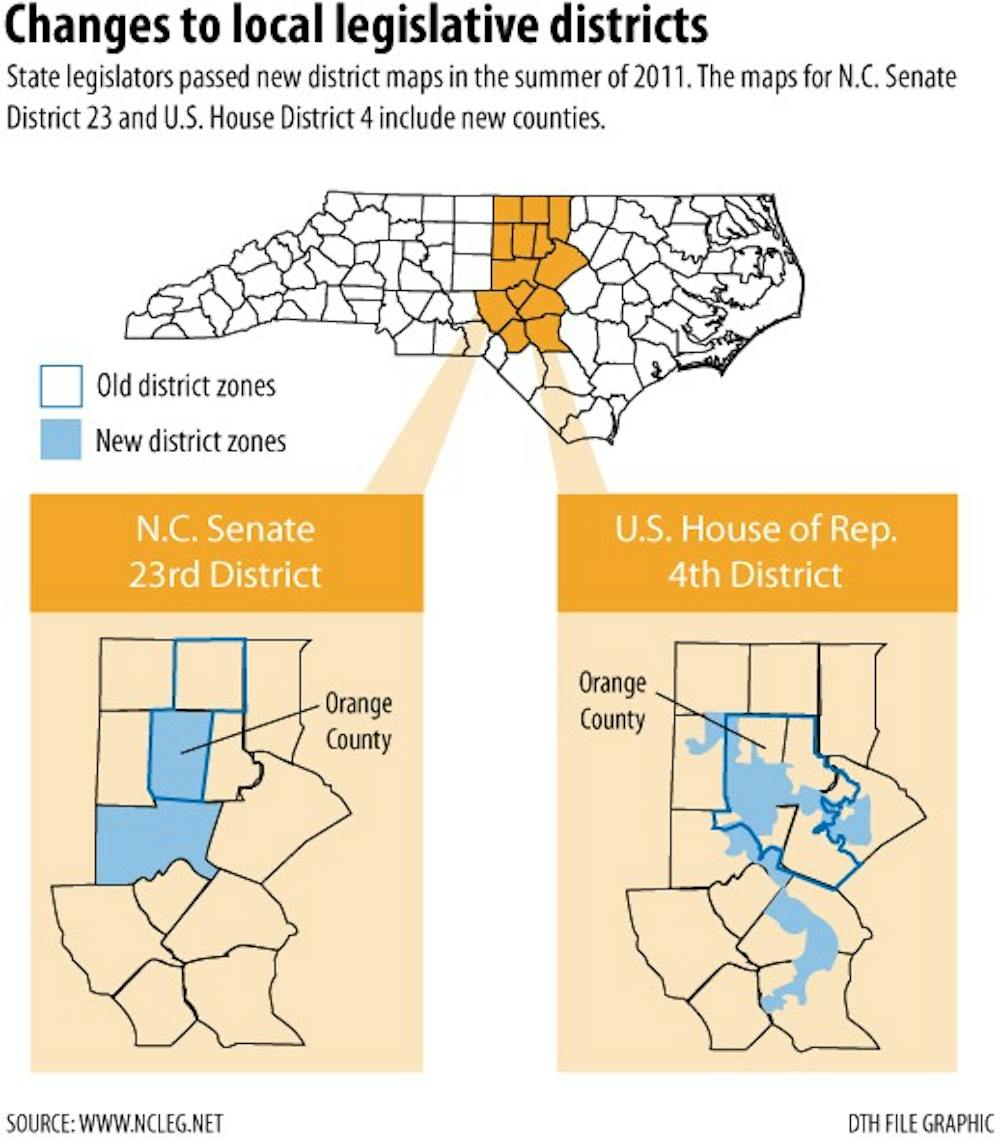With more than 60 uncontested seats in the N.C. legislature on ballots in this fall’s election, some experts are concerned that newly drawn district maps are favoring one party over another.
Republicans won majorities in both the N.C. House of Representatives and the Senate for the first time in more than 100 years in 2010, which enabled them to oversee the redrawing of district lines. November’s election is the first time these new lines will apply.
Members of both parties have said they are open to revamping the redistricting process — by tasking a nonpartisan board with drawing lines rather than the party in control — but efforts to reform the process have stalled in the past.
Rob Schofield, director of research and policy development at the left-leaning N.C. Policy Watch, said the redrawn lines grant a clear advantage to Republicans.
“It’s safe to say,” he said, “the maps that they have drawn are structured in such ways that would make it impossible for Democrats to recapture the legislature.”
But Jeanette Doran, executive director and general counsel for the right-leaning N.C. Institute for Constitutional Law, said redrawn lines do not guarantee outcomes for an election.
“Just because one party controls redistricting doesn’t mean it controls future majorities,” Doran said, pointing out that Democrats had controlled redistricting in the past but still lost the 2010 election.
Sen. Ellie Kinnaird, D-Orange, who is up for re-election, said voters can change the outcome of elections regardless of new district lines.
“We need people aware that their vote does count,” Kinnaird said. “We have had times where one vote per precinct made a difference.”



